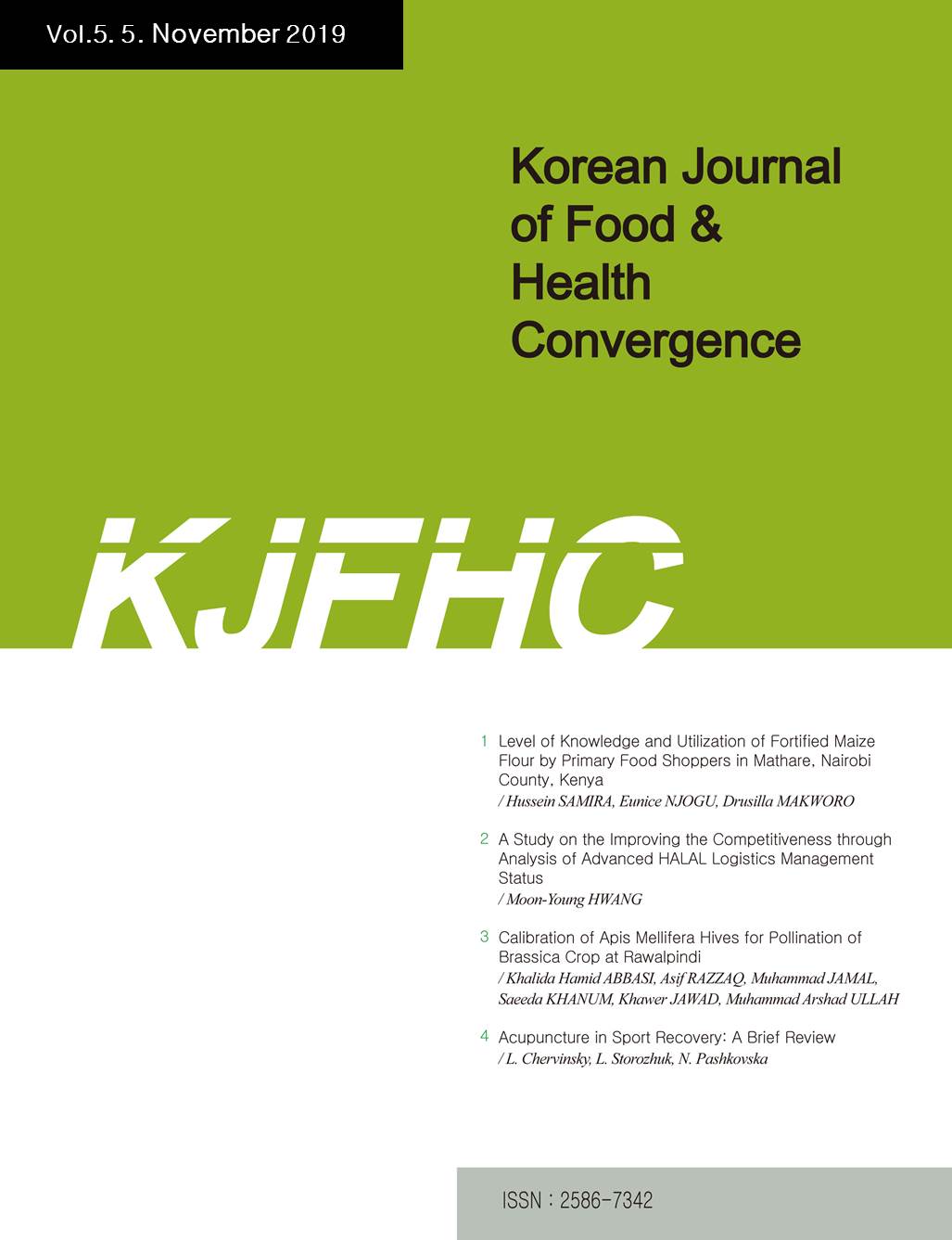- 권한신청
- E-ISSN2586-7342
- KCI
9권 5호
초록
Abstract
As the elderly population is rapidly increasing not only domestically but also globally, convenience foods for the elderly population are receiving attention. Therefore, the senior food market continues to grow rapidly both domestically and overseas. In relation to this, this study seeks to explore convenience food preferences through the growth status of the convenience food market and the demand for convenience food among the elderly population. We would like to consider various factors that influence the increase in convenience food consumption among the elderly population. This study uses meta-analysis and systematic literature research to find ways to revitalize the convenience food market targeting the elderly population. As a result of the analysis, it was mentioned that in order to revitalize the convenience food market for the elderly population, it is important to develop products with high nutritional value, suitable for the physical characteristics of the elderly population, and low price, and to consider convenience and accessibility. Through a multifaceted approach, we aim to increase the need for convenient food products that meet the needs of the elderly population, contribute to improving the health and well-being of the elderly, and further efficiently manage the health of the elderly nationally and globally.
초록
Abstract
Purpose: The purpose of this study is to analyze current trends in the Korean ice cream industry and determine how these trends affect the competitiveness of each ice cream company. Method: This study was conducted by reviewing existing related literature and collecting and analyzing data from news articles, corporate reports, and existing researchers' studies related to the ice cream industry. Results: The Korean ice cream industry is growing and developing through the collaboration of fun marketing with taste, quality, and fun elements, and the young MZ generation can be said to be the main customer base. In terms of quality, premium ice cream made with high-quality domestic ingredients has recently been gaining popularity, and ice cream with reduced fat and sugar, such as plant-based substitutes, is also gaining popularity among consumers. Conclusions and Implications: The results of this study highlight the need for continued innovation in the Korean ice cream industry. The industry must also capitalize on the growth of online sales and the global appeal of Korean pop culture. Sustainability efforts, technology adoption, and strategic collaboration are key drivers for future industry success, and social media engagement must be integrated into marketing strategies to increase brand awareness and consumer loyalty.

